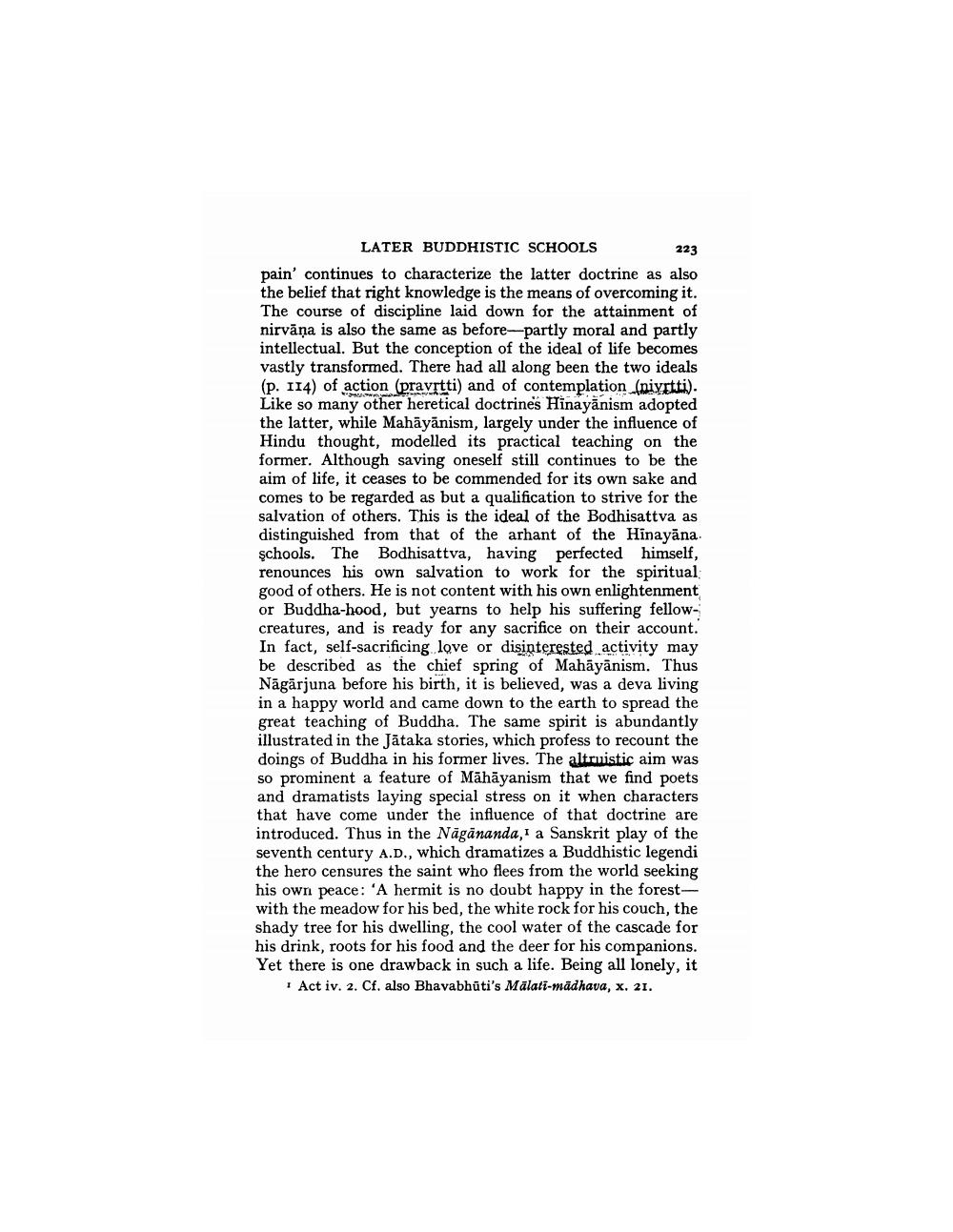________________
LATER BUDDHISTIC SCHOOLS
223 pain' continues to characterize the latter doctrine as also the belief that right knowledge is the means of overcoming it. The course of discipline laid down for the attainment of nirvāņa is also the same as before-partly moral and partly intellectual. But the conception of the ideal of life becomes vastly transformed. There had all along been the two ideals (p. 114) of action (pravrtti) and of contemplation Iniyrtti). Like so many other heretical doctrines Hinayānism adopted the latter, while Mahāyānism, largely under the influence of Hindu thought, modelled its practical teaching on the former. Although saving oneself still continues to be the aim of life, it ceases to be commended for its own sake and comes to be regarded as but a qualification to strive for the salvation of others. This is the ideal of the Bodhisattva as distinguished from that of the arhant of the Hinayāna schools. The Bodhisattva, having perfected himself, renounces his own salvation to work for the spiritual good of others. He is not content with his own enlightenment or Buddha-hood, but yearns to help his suffering fellowcreatures, and is ready for any sacrifice on their account. In fact, self-sacrificing love or disinterested activity may be described as the chief spring of Mahāyānism. Thus Nāgārjuna before his birth, it is believed, was a deva living in a happy world and came down to the earth to spread the great teaching of Buddha. The same spirit is abundantly illustrated in the Jātaka stories, which profess to recount the doings of Buddha in his former lives. The altruistic aim was so prominent a feature of Māhāyanism that we find poets and dramatists laying special stress on it when characters that have come under the influence of that doctrine are introduced. Thus in the Nāgānanda, a Sanskrit play of the seventh century A.D., which dramatizes a Buddhistic legendi the hero censures the saint who flees from the world seeking his own peace: 'A hermit is no doubt happy in the forestwith the meadow for his bed, the white rock for his couch, the shady tree for his dwelling, the cool water of the cascade for his drink, roots for his food and the deer for his companions. Yet there is one drawback in such a life. Being all lonely, it
Act iv. 2. Cf. also Bhavabhūti's Malati-madhava, x. 21.




